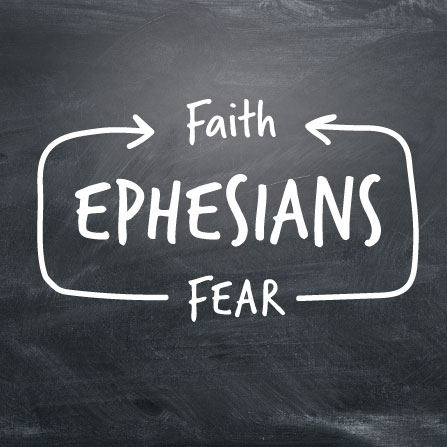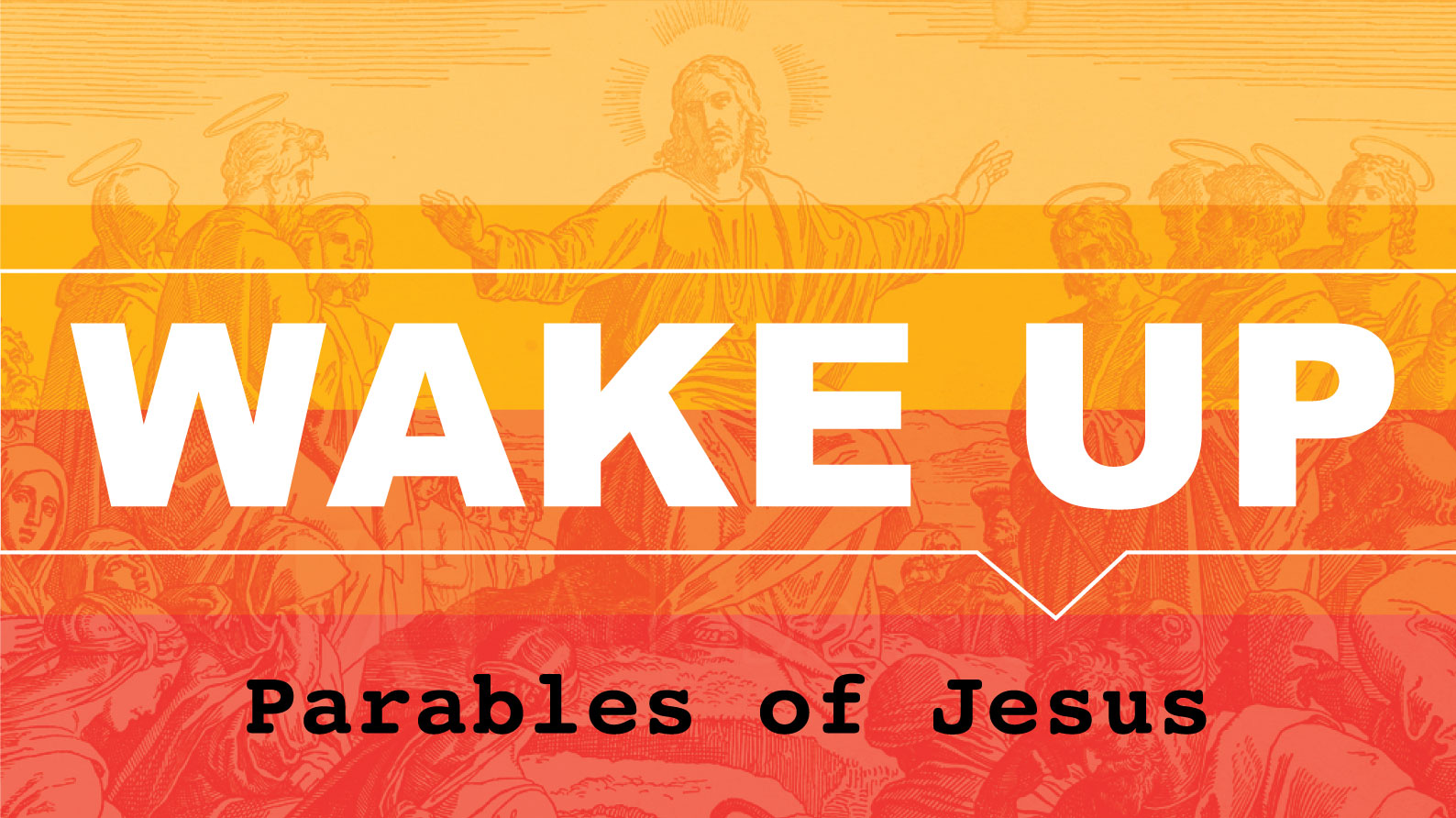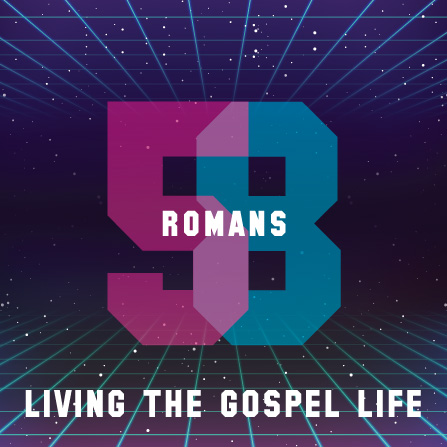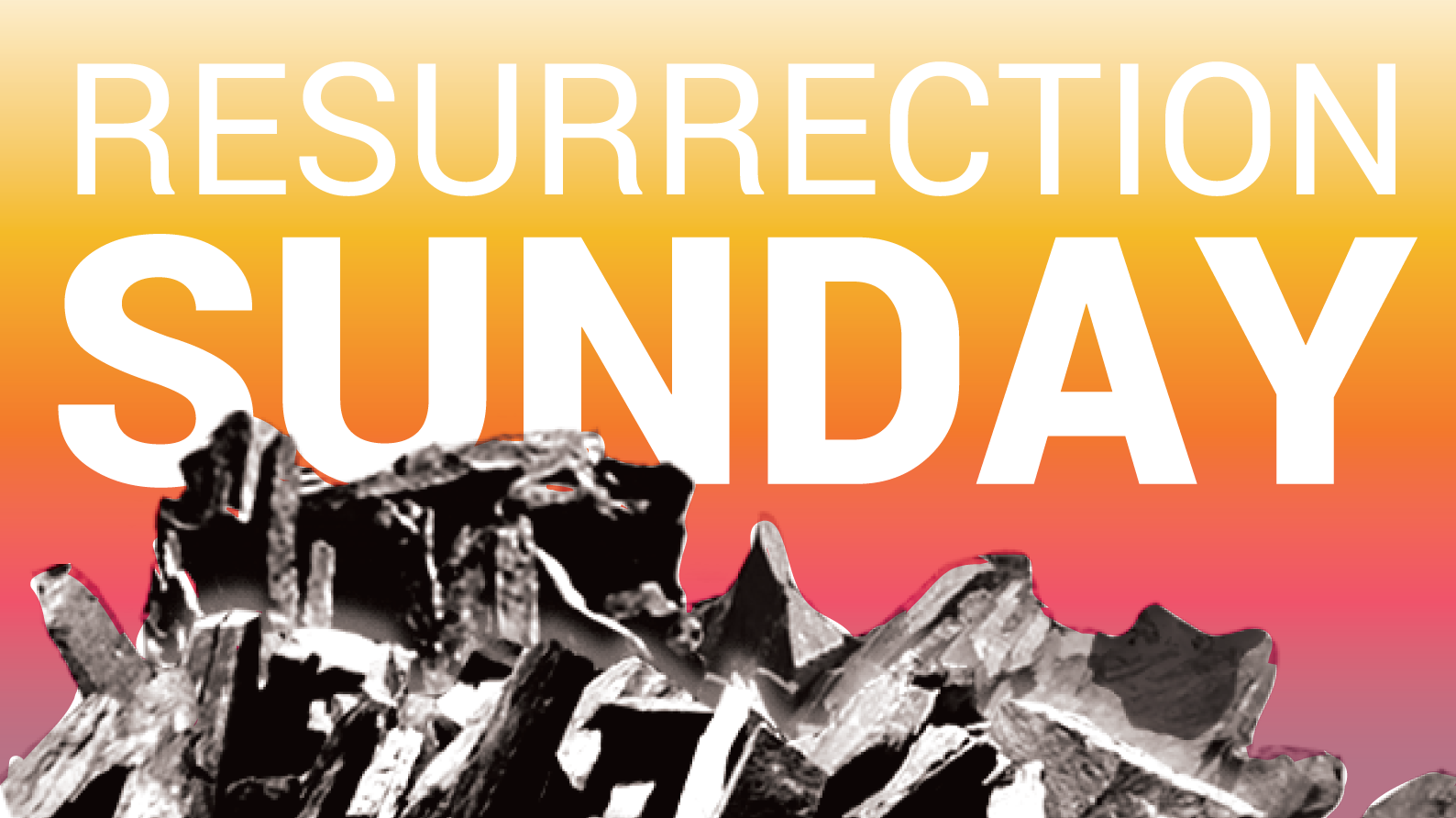Central Community Church, Seattle WA
We are a community of people in Seattle, WA with a vision to grow the family of God for the glory of God. This is a podcast of our weekly sermons as we study the Bible together and learn about what it means to be followers of Jesus in our city. For more info, visit us online at www.cccseattle.com.
Mark 4:1-20
Mark 3:31-35
Mark 2:18-22
Summer of Psalms
In this sermon Pastor David Evanger from Sideris Church in Seattle shares a message on God's divine patience--it's purpose and power in our lives and in our world from 2 Peter 3. We pray it speaks to you!
How do we find stability in an unstable world? Psalm 26 speaks of a spiritual stability that transcends circumstance and place. King David presents a simple guide to finding solid ground regardless of what is happening around us. We hope this is message is a blessing to you.
Paul closes the letter of Ephesians with a charge to be strong in the Lord. This is done not only with the courage of God but in the armor of God. What is this armor and how do we put it on each and every day? Why is it vital to fulfilling the call of the church today?
Paul closes his letter to the Ephesians with a strong encouragement to be strong in the Lord and put on the full armor of God. It's easy to forget that the Christian life is one of struggle and spiritual battle. And yet, this is not a posture of defeat, but of victory. Where do we get courage and strength to stand firm in the face of opposition? This is part 1 of 2 of sermons on the armor of God.
Ephesians 2 reminds us that Jesus has not only broken down the dividing wall of hostility between Jew and Gentile, but he is also building something new! As we overcome racial strife and injustice in the power of Christ, how do we also join Jesus in what he is building in the world today? Why does diversity matter to God and his Kingdom? How can we more greatly reflect the cross-cultural redemptive mission of Jesus in the world today?
In this message Pastor Jeff sits down with another local pastor in Seattle, Pastor Harvey Drake of Emerald City Bible Fellowship. They discuss the current civil unrest in our nation and the need for the church to stand in the gap.
Racial justice is a very difficult topic to discuss for many people. And yet, justice, reconciliation and restoration are near to the heart of God and central to the gospel. Jesus Christ has broken down the dividing wall of hostility. The question is, has this been fully received in our hearts and our churches? Before we move forward with hope, it's going to require a difficult look at our past. Thankfully Jesus gives us courage to do both.
What is Christian marriage all about? Ephesians 5:21-33 points followers of Jesus to a powerful picture of how a husband and wife can receive and extend the grace of Jesus in their lives and in the world. What does it look like to find both healing and direction for our marriages today? This passage cuts through the noise and provides a clear path forward.
Are you feeling tired and worn out from this pandemic? How do we get energy to keep going? This sermon is a stand alone sermon on one of David's most beloved Psalms, Psalm 63. David was in a desert experience of his own when he wrote this hymn. How did David find renewal in the desert? How might we find renewal in the middle of a pandemic. We hope this message is a blessing to you.
If there are two words that make the modern person bristle, it has to be 'submission' and 'authority'. And yet, Paul instructs believers to in Ephesians 5:21 to 'submit to one another out of reverence for Christ.' Why is authority and submission difficult for us? What is the original intent behind it and is it possible to rediscover the life-giving purpose of this Christian duty. This sermon explores both of these themes through the entire narrative of the Bible.
What does it look like to walk in wisdom? Christians have always assumed days were full of trouble. At the same time, this did not lead to pessimism, but a redemptive approach to time. In the age of information, how do we actually walk in wisdom?
Ephesians 5:1-14
This message was given by Pastor Jason Davison of Grace Seattle on Psalm 77.
The second half of Ephesians is all about Christian conduct. Paul begins this section with speaking to how we treat one another. Kindness should mark everything we do because this is how God has treated us in Christ. Yet, kindness is often misunderstood. What does it really look like to be kind like God and why does it matter?
Everybody needs a king. Especially today we all see the need for good leadership. Palm Sunday is a day where we remember Jesus' triumphal entry into Jerusalem a week before his death. What does this moment teach us about Jesus? What does it teach us about ourselves? And, why does it matter? Especially today?
Ephesians 4:17-24
Ephesians 4:7-16
Ephesians 4:1-16
Where could you use more strength in life? What are you facing that feels bigger than you? The Apostle Paul closes chapter 3 of Ephesians with a prayer for spiritual strength. What is this strength he prays for and how do we grow in it? We often want life to get easier, but life with Christ promises something greater -- we will get stronger.
Do you ever feel discouraged in the setbacks you experience in following Jesus? Some of the Apostle Paul's greatest ministry happened when he was in prison in Rome. At the same time, the churches Paul founded and ministered to struggled with discouragement. In Ephesians 3:1-13, Paul sets out to encourage the believers to not lose heart about his predicament and what it could mean for them and their faith. In the face of discouragement, how might these words bring encouragement to us today? How might these word keep us faithful in the work of God in our own day?
Christian baptism is one of the two primary sacraments celebrated by the universal church. What is the significance of baptism? Why do people choose to take this step in their faith? Why go public?
What does God desire? This is a very important question we need to be asking ourselves as Christian's. One very clear answer in scripture is that God desires we be 'one'. That is Christian unity? How do we actually move towards it more and more? In Ephesians 2:11-22 Paul lays the foundation for the oneness that was accomplished in Christ. These words are very relevant for us today.
It is not hard to be pessimistic about the state of humanity today. Why is the world the way it is? In Ephesians 2:1-10 the apostle Paul contrasts the human condition before Christ and the believers new condition in Christ. How might these timeless truths not only shape our own understanding of the gospel but enable us to engage the world well today?
This message is a stand-alone sermon by guest preacher Pastor Dave Evanger from Sideris Church in Seattle, WA. Dave explores the theme of "living hope" from 1 Peter 1:3-12. What does "living hope" look like in our lives? How do we share this hope with others?
One of the treasures of scripture are the prayers it contains. Ephesians 1:15-23 is one of two prayers by the Apostle Paul in the book of Ephesians. What would it look like if this prayer was answered in our lives today? What would it look like to pray more like this for ourselves and for others? In a world consumed with the knowledge of self, this prayer moves us to the greatest knowledge of all, the knowledge of God.
What does it mean to live a "blessed" life? There is a lot of misunderstanding today about what the word means and how blessing is obtained. Ephesians 1:3-14 is one long sentence in the original greek and speaks of every spiritual blessing that is given to every believer in Christ. What are these blessings that Paul speaks of? How might they consume our hearts and minds and what difference would it make in our lives and in our world?
Where do you get your identity? From yourself? From others? The bible tells us that our identity comes from God. The book of Ephesians begins with a salutation from the Apostle Paul to believers in Ephesus. While the greeting is short it's packed with meaning about both the author and audience of this book. It also speaks to the foundation of Christian identity.
Jesus left his followers with a few key instructions, recorded at the end of Matthew 28. These instructions are known as the Great Commission. Unfortunately, it can be easy to make our lives, our families, and our churches about many other things than what Jesus asked us explicitly to do. What does it look like to be disciples and make disciples? How do we know we are on the path of authentic and vibrant discipleship? How do we know we are making disciples? This sermon explores these vital questions as we look to a new year and a new decade.
Facing a new year and a new decade is always exciting. What does it look like to transition well during moments like these? How do we think about our past and plan for our future? This unpacks these questions and more as we think about where we have come and where we are going.
Peace. Where do you go for peace? Why do we covet peace so much? One of the names given to Jesus is Prince of Peace. How is it that Jesus brings peace in to our lives? How do we actually experience His peace? This sermon explores the theme of Jesus' peace by looking at Ephesians 2:11-22.
One of the more intriguing names given to Jesus in Isaiah 9:6 is Everlasting Father. Out of the four names this name points to the kind of love and inner workings of Jesus' attitudes and motives in coming to this earth. This sermon unpacks the unique love of God by looking at 1 John 4:7-21. What is unique about God's love? What is it like? What does it look like to abide in His love? We live in a world that continually offers false love. How might we return to the love we all long for and ultimately need?
Where do you go for strength? Where do you need strength? In Isaiah 9:6 Jesus is called the "Mighty God" or what could be translated as "The Strong One". Power throughout history has often been feared more than welcome. Power has often been abused rather than used for the good of others. Why is it good news that Jesus is the Mighty God? Jesus used his power in a radically different way. His use of power not only makes the gospel what it is as well as leads His followers in a totally radical way of living.
Where do you need God's guidance and wisdom in your life? One of the names given to Jesus, the promised messiah, was "Wonderful Counselor". What does this tell us about the character of Jesus and the kind of gift he is to the world and to us? There are many voices and opinions in the world today, what does it look like to silence the noise and follow in a fresh way the council of Jesus?
What is the ultimate aim of your life? In the end what do you want to be known for? Jesus' parable of the talents has inspired Christian's, since it was first told, to set their focus on hearing "well done, good and faithful servant". What does it mean to live a life worthy of this praise? What does a life of investment look like today?
Jesus is coming back. What difference should this make on our daily lives now? The parable of the 10 virgins is one of Jesus' most provocative parables. What is the difference between a wise and foolish life? How does preparing for Christ's return determine which kind of life we end up living in the end?
What is the most common hindrance you experience in prayer? The gospels record three parables of Jesus on the subject of prayer. Each of them speak to a common hindrance every believer faces when approaching God in prayer. Prayer has been called "the breath of the soul". How might Jesus' parables inspire your prayer life and allow your soul to breathe again?
Do you struggle with forgiveness? What role does forgiveness have in your daily life? Why does it matter? The Parable of the Unforgiving Servant is one of Jesus' most challenging parables. It speaks of the incredible degree with which God has forgiven us as well as the responsibility we have to forgive others. This message unpacks the parable and challenges us all to consider how forgiveness might be applied in our own lives.
One of the most well known parables is the Parable of the Good Samaritan. It has deeply shaped modern society and how we treat others. At the same time, the message in this parable couldn't be more relevant to the issues we face today. Fostering biases and drawing boundaries around who we choose to love and serve has been a part of the human condition since the beginning of time. We also live in a world of talk, but is talking about something enough? What does this parable teach us today? How might we wake up to our own assumptions and truly live like Christ?
The Kingdom of God throughout the entirety of scripture is likened to a banquet put on by a generous host. Jesus has come to open the door to this eternal banquet. The key question is, who is invited? In this weeks sermon we unpack Jesus' well known parable of the Great Banquet. This parable encourages and challenges people alike to greater understand the generosity and grace of God.
What makes Christianity unique? The simplest answer is this: Grace. Grace is what sets apart Jesus from any other world view or world religion. What is this grace? How does a person comprehend it? The Parable of the Prodigal Son is one of the most famous stories ever told. While it is a well known story it is also easily misunderstood or taken for granted. What was Jesus' original intent in telling the story? What does it have to teach us today? If you want to understand grace more or struggle to receive it for yourself, this message is for you.
The parable of the "mustard seed and leaven" speak of the unique way God works in the world. It is often through the seemingly insignificant that God is doing his most profound work. We see this throughout the Old Testament and especially in the life and death of Jesus Christ. How do these parables help us reorient our own lives to what God is doing? How do they challenge us? How do they give us hope?
The Christian life is difficult but it's not without immense joy. It's a sacrifice but the reward far outweighs the cost. The joint parables of the hidden treasure and pearl of great price convey this message. What do the short but meaningful stories tell us about the Kingdom of God? How might we wake up to this reality in our own lives?
In this stewardship update Craig Nishizaki, an elder at CCC gives un update on where we are at financially. We have a lot to be grateful for!
Why is there evil in the world? Why is there sometimes evil in the church? What are we to do about it? The parable of the weeds speaks to what CS Lewis called the "roughness and density" of life. Life in God's kingdom is not without opposition. It's not without hypocrisy. How do we understand this reality, how do we respond, and what does it look like to be a faithful Christian through it all?
Why is it that some people seem to grow in faith and others get stuck? Why do some people seem to really respond to the gospel while for others it falls on deaf ears? How do we explain the struggle every believer faces with staying focused on Jesus, his word, and his Kingdom? The Parable of the Sower is one of the most well-known parables of Jesus and it helps answer these questions and more. It serves as a foundational parable to all of his other parabolic teachings. What does this parable tell us about the Kingdom of God? What does it tell us about our responsibility to respond?
What does it mean for the church to be on mission? How does the church get off mission? This sermon unpacks a moment in the life of Jesus and his disciples when he first gives them authority to carry out his mission on earth. This sermon was also given on Vision Sunday and the 5 year anniversary of Central Community Church.
One of the easiest ways to diminish the impact of the gospel on the Christian life is to compartmentalize it to the once a week gathering of God's people on Sunday. How does the gospel speak to the other six days of the week? This message given by guest speaker Dr. Al Erisman, explorers a fuller picture of a Christ-centered life by unpacking Psalm 73 and the implications a godly perspective has on our work. Our work brings us both pleasure and pain. How does Christ speak in to this all-important area of our lives?
"God helps those who help themselves." Many people believe this is a real verse in the Bible, and yet, not only is in not in the Bible, but it's the exact opposite of what the Bible teaches. Psalm 25 is a Psalm about the help of God in times of trouble. Psalm 25 not only encourages us to look to God for help in times of trouble, but it more importantly teaches us what kind of posture is needed to receive His help. If God doesn't help those who help themselves, who is it that God helps? This message answers that question.
What does it look like to be fully awake to the glory of God? One of the most important themes of scripture is the glory and majesty of God, and yet this theme is getting lost today in society and even at times in the church. Psalm 24 celebrates God's glory and was most likely sung during a time of revival in Israels history when King David brought back the arc of the covenant to Jerusalem. What might it look like for God in all of his fullness to once again dwell at the center of our lives, our families, our churches, and our cities today?
Psalm 23 is one of the most beloved Psalms in the entire psalter. It has brought comfort to so many people down through the ages. Why is this Psalm so significant? How might it speak to us, and lead us in our life of faith today? This weeks message explores these questions and many more.
**A portion of this weeks audio was lost due to technical difficulties. We apologize for the inconvenience.**
Psalm 22 is one of the most well-known Psalms because it the first line of the Psalm is quoted by Jesus as he was hanging on the cross. While the first line is well known, the entirety of the Psalm is not. What does this Psalm have to teach us today? Why was this the Psalm Jesus chose to sing while hanging on the cross?
What place does praise, worship, and gratitude have in your daily life? Psalm 20 speaks of the power of prayer, Psalm 21 speaks of the power of praise. Psalm 20 was sung before battle, Psalm 21 after battle. What is the purpose of pausing to give God thanks? Psalm 21 also speaks of God's ultimate judgement against evil. As believers the gospel both looks back on the past victory of Jesus on the cross, and looks forward to the future judgment when he returns. How does this perspective enable us to live victoriously in the trouble we face in this world?
Are you aware of the spiritual battle happening in your life? Are you prepared to face this battle? How do you prepare in general for the challenges in your life? Psalm 20 is a battle song that was sung before the people of Israel went to war. This Psalm shows us how turning to God first, in the face of our own struggles and conflicts is necessary to overcome the battles we face. What does this practically look like? What difference does it make? This Psalm answers these questions and more.
Where do you need more strength to face life's circumstances? One of the goals of the Christian life is not to escape trouble but to become stronger in the face of it and overcome. Psalm 18 is the testimony of King David and how God gave him strength all throughout his life to face trials as well as his enemies. How might God do the same for you?
Many people have heard of the phrase "Apple of my eye", but not many people perhaps know where it originates or fully what it means. The phrase comes from the Bible and is used only three times, Psalm 17 is one of them. This sermon examines the meaning of this phrase as well as it's ultimate fulfillment in Christ.
Everyone is looking for the good life. The problem is we often don't know how to define it, or find it. Psalm 16 is called the "Golden Psalm." It teaches us that ultimate good is only found in God, and when we attribute ultimate good to things less than God our sorrows are multiplied. This Psalm is also a messianic Psalm, meaning it points to Jesus and can be interpreted from Jesus' perspective. What would it look like for you to take refuge in God? What difference would it make for all of life?
What's holding you back? What fears control your life? How does the gospel help us overcome any and every fear or limitation we might have? In the final verses of Romans 8 the words to the Apostle Paul storm the fears of our hearts and move us to courageous action. The gospel is not just for the sake of information, but of total transformation. God has gone 'all in' with us, what does it look like for us to go 'all in' with Him? In a series of powerful and unanswerable questions Paul brings us to this place of decision and resolve.
What are you currently waiting for? What are you currently longing for? Where are you currently struggling with life and even suffering in pain? Romans 8 tells us that all of our longings are symptoms of a much deeper longing and to long for something better is ok. Verses 18-30 of chapter 8 serves as an encouragement to every believer that we can patiently endurance the sufferings of this life because of what is to come. What are these encouragements, and what difference would it make if we truly embraced them?
Romans 8 is one of the most spectacular statements in all of scripture, of the incredible life offered to every believer in Jesus Christ. Living life in the Spirit of God is a great privilege, at the same time it can be hard to grasp and employ. What does it mean that "the law of the Spirit of life in Christ Jesus, has set us free from the law of sin and death" (v.2)? How do we truly live our lives in the Spirit? What does this freedom look like? This sermon answers these questions and more.
What is the Christian's relationship to the law? What does obedience look like now that a person is saved by grace and not by works? Why do believers still struggle with sin? Romans 7 shows that a follower of Christ is released from living under the law while at the same time now seeking to loving obey the law. This results in a new kind of struggle with sin, but a struggle that does not resign to defeat, but victory through Jesus.
"Indeed you're gonna have to serve somebody, well, it may be the devil or it may be the Lord, but you're gonna have to serve somebody" - Bob Dillon
In Romans 6:15-23 Paul lays out the basic principal that Jesus has set us free from slavery to sin and made us slaves to God and his righteousness. To be a servant or slave of Christ was a term used of the highest honor in the early church. What does it mean? What did it mean to the original audience of Christian's in Rome? Why is it important for us today? Most of all, why is this another aspect of the good news of Jesus Christ?
How do we live the Christian life once we are saved? How do we now relate to sin and the old life we lived before Christ? Romans 6 answers a common question about the gospel: If when sin abounds, grace abounds all the more, does that mean we should keep on sinning? In this chapter Paul not only answers this question but lays the theological foundation for the sanctification of every believer.
Our choices matter, but they aren't the most important thing about us. The story of redemption can be summarized as a story of two men. The first Adam, who through his choice brought sin and death, and the second Adam, Jesus, who through his choice brought grace and life. In Romans 5:12-21 Paul contrasts these two choices and their ramifications on humanity for all of history. Not only does grace triumph over sin in the life of the Christian, but the Christian is also called to rule with this grace. What does it look like to not only allow grace to rule in our lives, but rule with the grace we now live in?
One of the great privileges of the Christian life is that we have peace with God. What does it mean to have peace with God? How do we know we are living out of this peace? Romans 5:1-11 explores this incredible theme and the kind of impact it should have in the life of every believer.
The resurrection of Jesus changes everything. How so? This sermon unpacks a well known event in Luke 24, when the risen Jesus encounters two disciples walking on the road to Emmaus. By the end of their time together, Jesus transforms their sadness and disappointment into faith in his resurrection. These disciples joined the other disciples and went on to be used of God to turn the world upside down. How does the resurrection of Jesus change everything for us today?






























































































